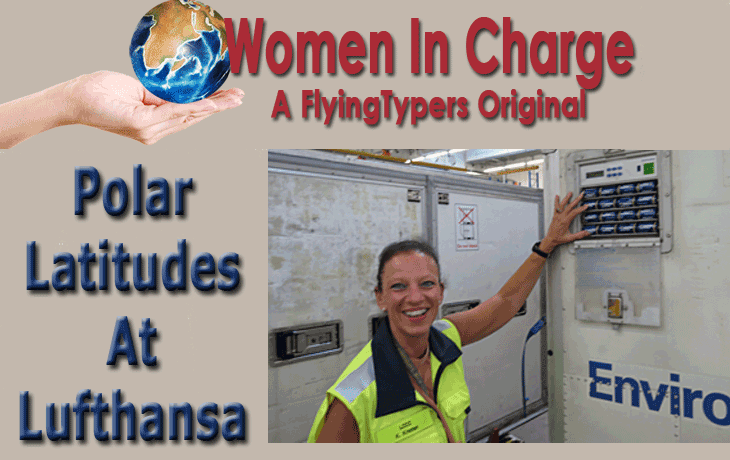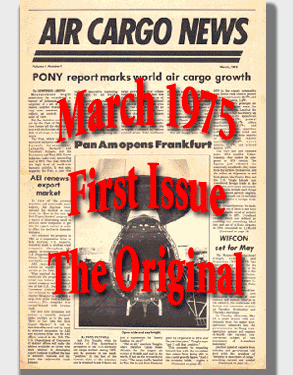
 FlyingTypers
recently caught up with Steven J. K. Lee, Chairman of Singapore Aircargo
Agents Association and also a senior executive at DHL Global Forwarding.
He believes Changi airport will remain a key hub for years to come, despite
the slow growth of the last decade. FlyingTypers
recently caught up with Steven J. K. Lee, Chairman of Singapore Aircargo
Agents Association and also a senior executive at DHL Global Forwarding.
He believes Changi airport will remain a key hub for years to come, despite
the slow growth of the last decade.
FlyingTypers:
After a poor 2012, we’re again seeing an avalanche of bad
news for air cargo this year. How are agents and forwarders in Singapore
coping?
Steven Lee: The market has
been in a downturn for a year and this has created a very competitive
environment. Everyone is trying to get whatever business they can, so
this is putting downward pressure on prices.
 :
What sort of financial pressure is this putting
on your members? :
What sort of financial pressure is this putting
on your members?
 : Well, there haven’t
been any defaulters at this moment, whether we’re talking about
agents, forwarders, or airlines. The challenge will be the last six months
of this year. Everyone can sustain a downturn for one and a half years
but there is still no indication of any upsurge. How we finish the final
part of this year is very important. My view is if the market continues
softer, then it will be a big challenge in 2014.
: Well, there haven’t
been any defaulters at this moment, whether we’re talking about
agents, forwarders, or airlines. The challenge will be the last six months
of this year. Everyone can sustain a downturn for one and a half years
but there is still no indication of any upsurge. How we finish the final
part of this year is very important. My view is if the market continues
softer, then it will be a big challenge in 2014.
 :
Are you hopeful we’ll see a traditional peak
season later in the year? :
Are you hopeful we’ll see a traditional peak
season later in the year?
 : I expect a slow upsurge
over September-November as things can’t continue like this. The
U.S. looks better than Europe. I think shipper product launches from companies
like Microsoft and Samsung coming out later this year for Christmas will
help, both to Europe and the US and also intra-Asia.
: I expect a slow upsurge
over September-November as things can’t continue like this. The
U.S. looks better than Europe. I think shipper product launches from companies
like Microsoft and Samsung coming out later this year for Christmas will
help, both to Europe and the US and also intra-Asia.
 :
We saw most major air cargo gateways lose volumes
last year but Changi remained static, as it has for most of the last decade
when others were growing. Are there any markets where you have seen cause
for optimism? :
We saw most major air cargo gateways lose volumes
last year but Changi remained static, as it has for most of the last decade
when others were growing. Are there any markets where you have seen cause
for optimism?
 : Japan’s economy
is being transformed; currency depreciation is helping exports and that
knocks on through Singapore, because some Japanese production is here.
China has slowed down on exports but I think there will be a pick-up in
momentum from November. There will be some delayed production, which means
there will be a catch up for Christmas that could last through to Chinese
New Year, so we’re hoping there will be a pick-up through to February.
Indonesia is also going well and is one of the fastest growing areas for
our members. This is mostly consumer product imports, energy, and oil
and gas products. A lot comes through Changi for onward transshipment.
: Japan’s economy
is being transformed; currency depreciation is helping exports and that
knocks on through Singapore, because some Japanese production is here.
China has slowed down on exports but I think there will be a pick-up in
momentum from November. There will be some delayed production, which means
there will be a catch up for Christmas that could last through to Chinese
New Year, so we’re hoping there will be a pick-up through to February.
Indonesia is also going well and is one of the fastest growing areas for
our members. This is mostly consumer product imports, energy, and oil
and gas products. A lot comes through Changi for onward transshipment.
 :
Are Changi airport and operators based in Singapore
suffering from competition from the Middle East? :
Are Changi airport and operators based in Singapore
suffering from competition from the Middle East?
 : Of course there is an
impact. They have an advantage, they produce their own fuel, so some of
our market share has been lost.
: Of course there is an
impact. They have an advantage, they produce their own fuel, so some of
our market share has been lost.
 :
How has Singapore’s air cargo community been
affected by cuts in capacity by SIA? :
How has Singapore’s air cargo community been
affected by cuts in capacity by SIA?
 : I think freighter capacity
has been reduced but this has been compensated for in other areas by more
use of wide-body passenger planes. I don’t think they will be increasing
freighter capacity in the future. I think one of the reasons is they know
the express business will grow due to ecommerce and the use of the internet
for shopping through shops like Alibaba. SIA is looking at that market
and how best to support express companies.
: I think freighter capacity
has been reduced but this has been compensated for in other areas by more
use of wide-body passenger planes. I don’t think they will be increasing
freighter capacity in the future. I think one of the reasons is they know
the express business will grow due to ecommerce and the use of the internet
for shopping through shops like Alibaba. SIA is looking at that market
and how best to support express companies.
 :
Do you believe Singapore is still competitive on
price? :
Do you believe Singapore is still competitive on
price?
 : It is more expensive for
manufacturing here now, but as a strategic location it is still one of
the best for hubbing and warehousing. There has been a move up-market
by manufacturers due to higher costs. Some shippers are also using ocean,
rail, and trucking more. So there has been a modal shift and a shift towards
smaller products, which means less volume. The use of rail to Europe is
also not positive for air cargo.
: It is more expensive for
manufacturing here now, but as a strategic location it is still one of
the best for hubbing and warehousing. There has been a move up-market
by manufacturers due to higher costs. Some shippers are also using ocean,
rail, and trucking more. So there has been a modal shift and a shift towards
smaller products, which means less volume. The use of rail to Europe is
also not positive for air cargo.
 :
What does this mean for air cargo agents and Changi? :
What does this mean for air cargo agents and Changi?
 : Singapore will continue
to diversify and improve infrastructure. But the government is investing
in rail and the port to improve connectivity. This is bad for air but
forwarders will have to adapt and the Government is encouraging this.
They want forwarders and agents to do more than just air freight and have
promised to support whatever initiatives are required, such as training,
to grow the knowledge base.
: Singapore will continue
to diversify and improve infrastructure. But the government is investing
in rail and the port to improve connectivity. This is bad for air but
forwarders will have to adapt and the Government is encouraging this.
They want forwarders and agents to do more than just air freight and have
promised to support whatever initiatives are required, such as training,
to grow the knowledge base.
 :
How have the incentives provided by CAG for freight,
such as landing fees and rental rebates, helped the freight sector over
the last year? :
How have the incentives provided by CAG for freight,
such as landing fees and rental rebates, helped the freight sector over
the last year?
 : I think that has contributed.
CAG is very fair and they are also helping with funding on rentals and
incentives for volume growth to forwarders. The Civil Aviation Authority
of Singapore supports E-Freight funding. They are also working to enhance
the industry and the best way, of course, is to support the forwarders
and airlines. This is one of their strengths; they are very supportive.
Competition is growing from other hubs, but Changi will continue as a
very important airport hub.
: I think that has contributed.
CAG is very fair and they are also helping with funding on rentals and
incentives for volume growth to forwarders. The Civil Aviation Authority
of Singapore supports E-Freight funding. They are also working to enhance
the industry and the best way, of course, is to support the forwarders
and airlines. This is one of their strengths; they are very supportive.
Competition is growing from other hubs, but Changi will continue as a
very important airport hub.
SkyKing
|







